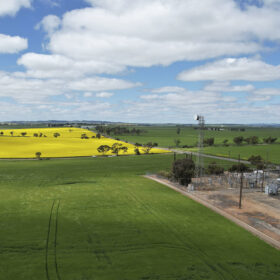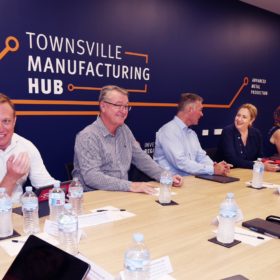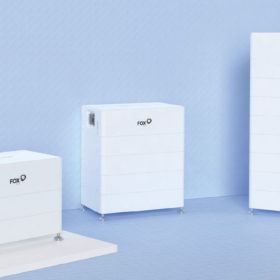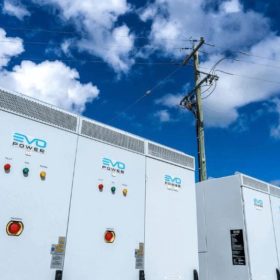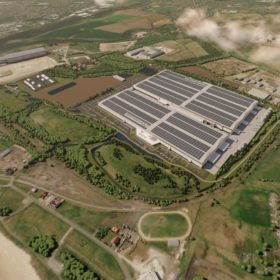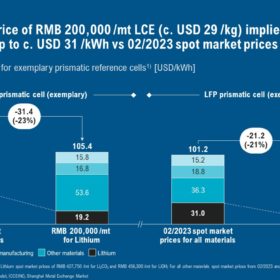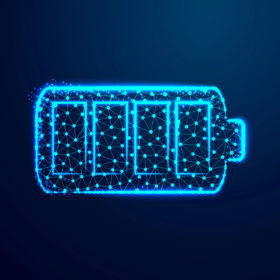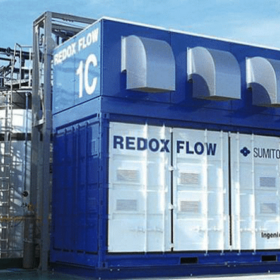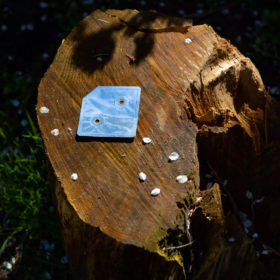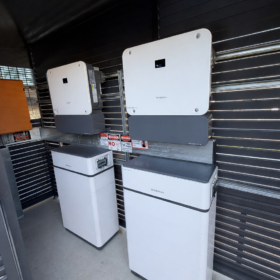Zen Energy charging up first big battery project in SA
Electricity retailer Zen Energy has announced plans to develop its first utility-scale battery energy storage system after acquiring the 111 MW/270 MWh Templers Battery project in South Australia from UK-based developer Renewable Energy Systems Group.
Vecco plans ‘Australian first’ vanadium electrolyte manufacturing facility
Australian resources developer Vecco Group has secured state government backing to build a $26 million (USD 17 million) vanadium electrolyte manufacturing facility in the north Queensland city of Townsville with production set to be used in grid-scale vanadium flow battery projects.
Weekend read: Dawn of the store-age
Last year was another landmark 12 months for energy storage, with all indicators pointing to a massive surge in demand. Supply chain instability and inflation saw battery prices rise, but the industry demonstrated an ability to swiftly react to geopolitical developments. Marija Maisch examines five trends driving the market.
EVO Power, Evergen partner to optimise C&I batteries
Australian energy storage systems provider Evo Power has teamed with battery optimisation technology provider Evergen in a move which aims to make it easier for commercial and industrial-scale battery customers to optimise and monetise their assets.
Australia-based startup buys collapsed battery maker Britishvolt
Only weeks after announcing its plan to build a lithium-ion battery gigafactory in Geelong, Australia-based startup Recharge Industries has bought collapsed battery maker Britishvolt – doubling its manufacturing ambitions. The takeover resuscitates Britishvolt’s gigafactory play in northern England, and means the little known startup now holds two significant battery making projects.
Mike Cannon-Brookes among Infradebt’s big battery investors
Atlassian CEO Mike Cannon-Brookes’ family fund Grok Ventures is among the initial investors in Canberra-based Infradebt’s Energy Transition Fund. The fund will finance six to eight grid-scale battery projects with a total capacity of up to 2 GW.
CATL offers big battery discounts amid looming lithium surplus
CATL’s new lithium pricing structure gives Chinese original equipment manufacturers (OEM) an effective discount of more than 20%. It is making the move to win more orders amid a slowdown in the electric-vehicle market and the ongoing efforts of cell manufacturers to secure raw materials.
High-capacity energy storage based on affordable, eco-friendly materials
Worldwide Universities Network researchers used cheap and abundant starting materials to synthesise a small molecule organic electrode material and achieved a considerable performance boost with various battery chemistries. The new cathode material exhibited unparalleled cycling stability, ultra-high capacity, and rate capability in aqueous zinc-ion batteries.
Vanadium flow batteries to be deployed at WA mine ahead of manufacturing push
Western Australia-based AVESS is set to deploy demonstration batteries at a WA mine site in the second half of the year. The deployment is about proving the company’s technology, as it plans to move towards manufacturing the flow batteries in Australia from 2024.
Custom-made 3D printed solid-state batteries
US-based Sakuu has announced that it has successfully 3D printed solid-state batteries in custom shapes and sizes at its battery pilot line facility in Silicon Valley, California.
